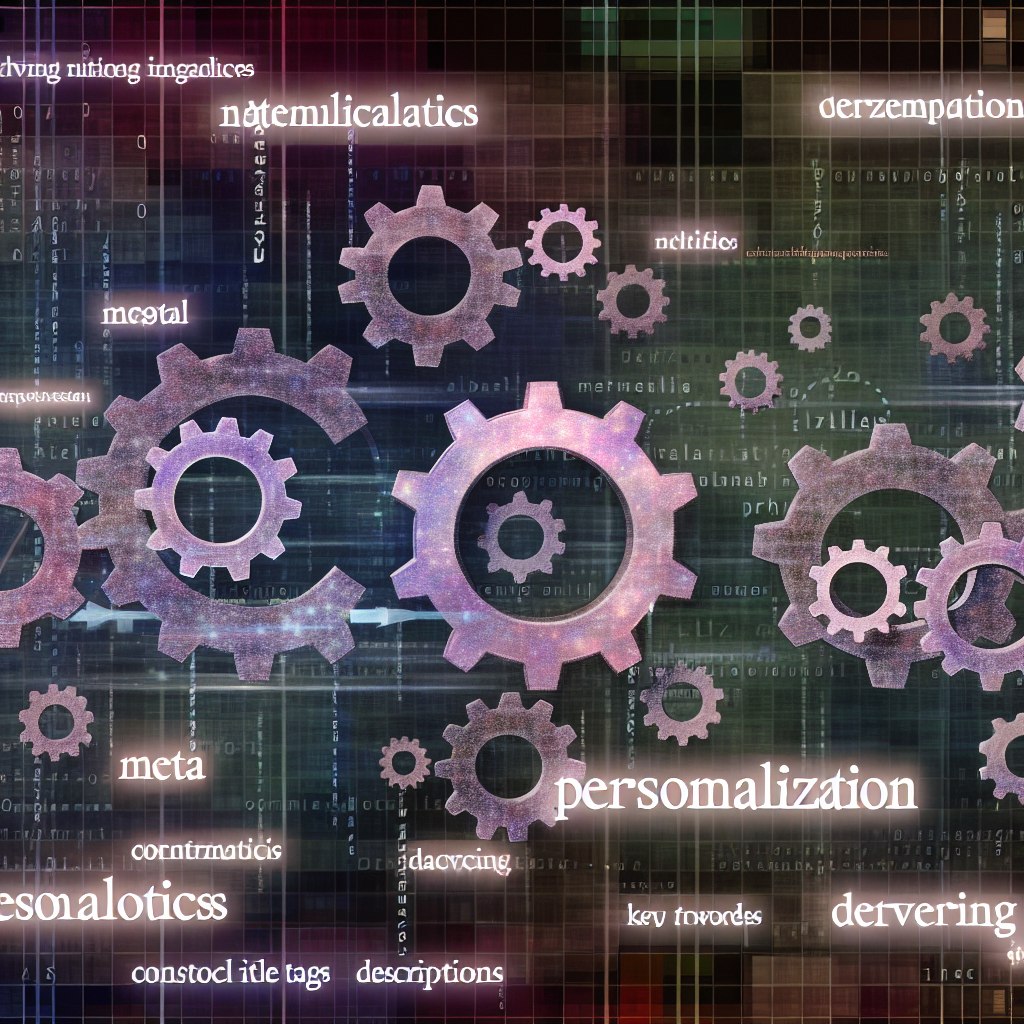How AI-Powered SEO Strategy is Reshaping Digital Marketing for Enterprise Brands
Introduction
In today’s hyper-competitive digital ecosystem, enterprise-level brands are increasingly harnessing the capabilities of AI-powered SEO to craft scalable and intelligent strategies that far surpass traditional optimization methods. As search engines rapidly evolve—particularly Google and Bing, now largely governed by artificial intelligence—marketing professionals must pivot from reactive tactics to proactive, predictive, and automated frameworks. For C-suite marketing leaders and SEO professionals operating at scale, this evolution is not a trend—it’s a business imperative.
AI-powered SEO utilizes algorithms from machine learning, Natural Language Processing (NLP), and big data analytics to analyze massive volumes of search queries, content performance, keyword intent, and technical website data in real time. The integration of these technologies delivers hyper-targeted optimization, enabling enterprise teams to predict user behavior, uncover untapped ranking opportunities, and automate both technical and content-driven actions across thousands of site pages.
Industry leaders like IBM, Amazon, and Salesforce have successfully adopted AI-based SEO tools to construct topic clusters, enrich internal linking structures, decipher semantic keyword intent, and maintain optimal site architecture. These brands understand that Google’s algorithms no longer prioritize keyword-stuffed content. Instead, they emphasize semantic relevance, entity-based search, and user-centric signals such as CTR, engagement, and dwell time.
As Google’s Search Generative Experience (SGE) and AI-driven SERPs continue to grow, enterprise brands must adjust their strategy to emphasize not just keywords, but fully-formed content ecosystems built to display topical authority and user value. Tools like MarketMuse, SurferSEO, and Clearscope leverage powerful AI engines like GPT-4, Google BERT, and MUM to analyze competitors, generate optimized content outlines, and deliver real-time optimization feedback.
AI isn’t just a tool for automating repetitive SEO tasks; it’s a force multiplier that enhances decision-making across every dimension of enterprise SEO. From scalable content creation and competitor tracking to link intelligence and live performance analytics, AI integration allows enterprise brands to scale with precision. For marketing executives, embedding AI into SEO operations marks a paradigm shift—an opportunity not only to sustain visibility but to command digital leadership in increasingly complex search environments.
Features and Current Studies
The rise of AI in SEO is borne out by current research and case studies that demonstrate measurable performance gains. A notable 2021 report by McKinsey found that businesses integrating AI into marketing and sales saw a 10–20% increase in revenue. Within SEO teams, these gains are even more significant when AI is applied to content generation, keyword clustering, and competition gap analysis.
The 2022 BrightEdge ‘Future of SEO’ report showed that more than 60% of marketers either already use or plan to adopt AI in SEO strategy. Major applications include AI-powered content audits, search intent modeling, personalized A/B testing, and dynamic keyword suggestions. These innovations help brands identify underperforming assets and auto-recommend optimizations aligned with current algorithm updates and user activity trends.
On the technical side, solutions like Botify and Deepcrawl lead the charge in AI-assisted site audits. These platforms alert users to indexation issues, link depth problems, and page speed inefficiencies before those issues affect rankings. These predictive and scalable platforms integrate seamlessly with enterprise Data Management Platforms (DMPs), further empowering teams to act proactively instead of reactively.
Advancements in Natural Language Processing have transformed how content is evaluated by algorithms. Google’s BERT model shifted emphasis toward semantic search, rewarding relevance, readability, and contextual accuracy over raw keyword repetition. Tools like MarketMuse and Clearscope have replicated this capability, using NLP to create briefs that prioritize topic depth, intent alignment, and user-focused value.
According to a 2023 Salesforce State of Marketing report, 68% of top-performing marketers are leveraging AI to increase decision-making speed, and 71% report that AI significantly improves content personalization. This is especially critical in SEO, where algorithms reward tailored user experiences supported by high-quality content. AI aids enterprise marketers in tailoring not just landing pages—but entire site structures—for maximum user satisfaction and engagement.
For industries in YMYL (Your Money or Your Life) sectors—including finance, law, and healthcare—precision is paramount. Here, AI tools ensure accurate schema implementation, fact-checking, and authoritative sourcing. These measures build trust, reduce misinformation, and are critical for meeting Google’s E-E-A-T guidelines (Experience, Expertise, Authoritativeness, and Trustworthiness).
Conclusion
AI is not just enhancing SEO—it’s redefining it. For enterprise brands, AI-powered SEO delivers unmatched advantages in predictive analytics, semantic strategy, and automated optimization. As search engines evolve and users demand more intuitive, valuable experiences, organizations that embed AI into their core SEO practices will not only lead organic rankings but forge stronger digital trust across their audiences. The future of brand visibility isn’t just about keywords—it’s powered by intelligence.
Summary
AI-powered SEO is transforming how enterprise brands approach content strategy, technical optimization, and search behavior analysis. Leveraging tools like GPT-4, BERT, and Clearscope, top organizations streamline SEO tasks while improving accuracy, relevance, and personalization at scale. Current research highlights increased revenue performance and strategic gains among AI adopters. For industries in regulated or sensitive sectors, such as finance and healthcare, AI ensures compliance and factual reliability. As Google moves toward human-centric search, brands that embed AI in their strategies will outpace competitors through smarter, faster, and more scalable SEO.
References
– McKinsey: The State of AI in 2021
– BrightEdge: Future of SEO Report
– Salesforce: State of Marketing 2023
– Google BERT Explained
– MarketMuse AI-Driven Content Strategy
– Botify for Technical SEO
– Deepcrawl for Site Performance
– SurferSEO Content Optimization

Dominic E. is a passionate filmmaker navigating the exciting intersection of art and science. By day, he delves into the complexities of the human body as a full-time medical writer, meticulously translating intricate medical concepts into accessible and engaging narratives. By night, he explores the boundless realm of cinematic storytelling, crafting narratives that evoke emotion and challenge perspectives.
Film Student and Full-time Medical Writer for ContentVendor.com
